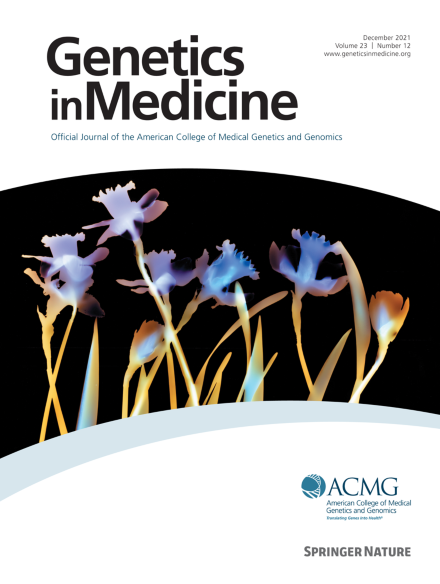协调本科医学遗传学教育的能力:APHMG与PCME能力。
IF 6.2
1区 医学
Q1 GENETICS & HEREDITY
引用次数: 0
摘要
目的:我们想了解人类和医学遗传学教授协会(APHMG)和病理学主席协会(APC)发表的本科医学教育(UME)与医学和/或实验室遗传学主题相关的能力之间是否存在差距。方法:本研究比较和对比了与遗传学相关的APHMG和APC能力,以确定两者之间和内部的差距,从而为佛罗里达大学医学和实验室遗传学UME课程开发中的这些差距提供信息。结果:在两份文件内部和之间确定了差距,许多与非遗传性癌症的肿瘤和与实验室遗传学相关的各种主题有关,例如结果的解释,实验室诊断原则,以及向他人解释结果。结论:APHMG和APC应该在未来更新各自的能力时考虑到本研究中发现的差距。此外,医学院课程委员会也不妨考虑解决医学遗传学课程发展中的这些差距。本文章由计算机程序翻译,如有差异,请以英文原文为准。
Reconciling competencies in undergraduate medical genetics education: APHMG versus PCME competencies
Purpose
We wanted to understand whether there were gaps within and/or between the Association of Professors of Human and Medical Genetics (APHMG) and the Association of Pathology Chairs (APC) published competencies for undergraduate medical education pertaining to topics in medical and/or laboratory genetics.
Methods
This study compared and contrasted the APHMG and APC competencies related to genetics to identify gaps between and within each to inform the closure of those gaps in undergraduate medical education curriculum development for medical and laboratory genetics at the University of Florida.
Results
Gaps were identified within and between both documents, many relating to neoplasia for nonheritable cancers and various topics related to laboratory genetics, such as interpretation of results, principles of laboratory diagnostics, and explaining results to others.
Conclusion
APHMG and APC should consider the gaps identified in this study in future updates to their respective competencies. Additionally, medical school curriculum committees may also wish to consider addressing these gaps in the development of medical genetics curricula.
求助全文
通过发布文献求助,成功后即可免费获取论文全文。
去求助
来源期刊

Genetics in Medicine
医学-遗传学
CiteScore
15.20
自引率
6.80%
发文量
857
审稿时长
1.3 weeks
期刊介绍:
Genetics in Medicine (GIM) is the official journal of the American College of Medical Genetics and Genomics. The journal''s mission is to enhance the knowledge, understanding, and practice of medical genetics and genomics through publications in clinical and laboratory genetics and genomics, including ethical, legal, and social issues as well as public health.
GIM encourages research that combats racism, includes diverse populations and is written by authors from diverse and underrepresented backgrounds.
 求助内容:
求助内容: 应助结果提醒方式:
应助结果提醒方式:


